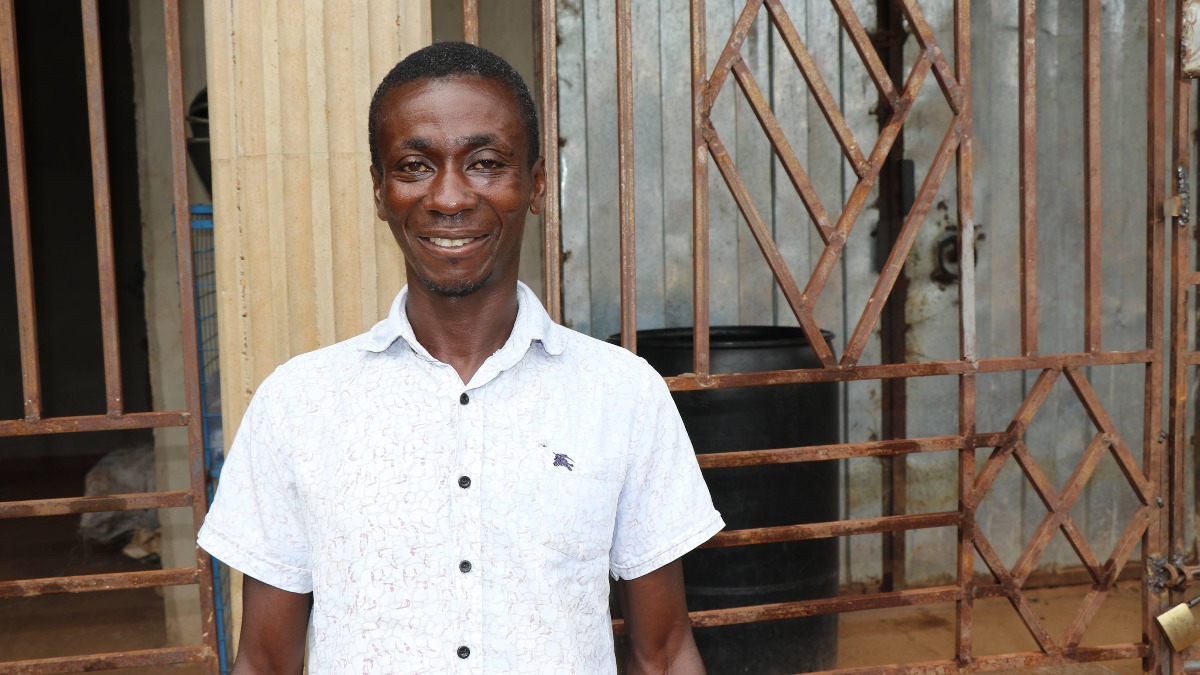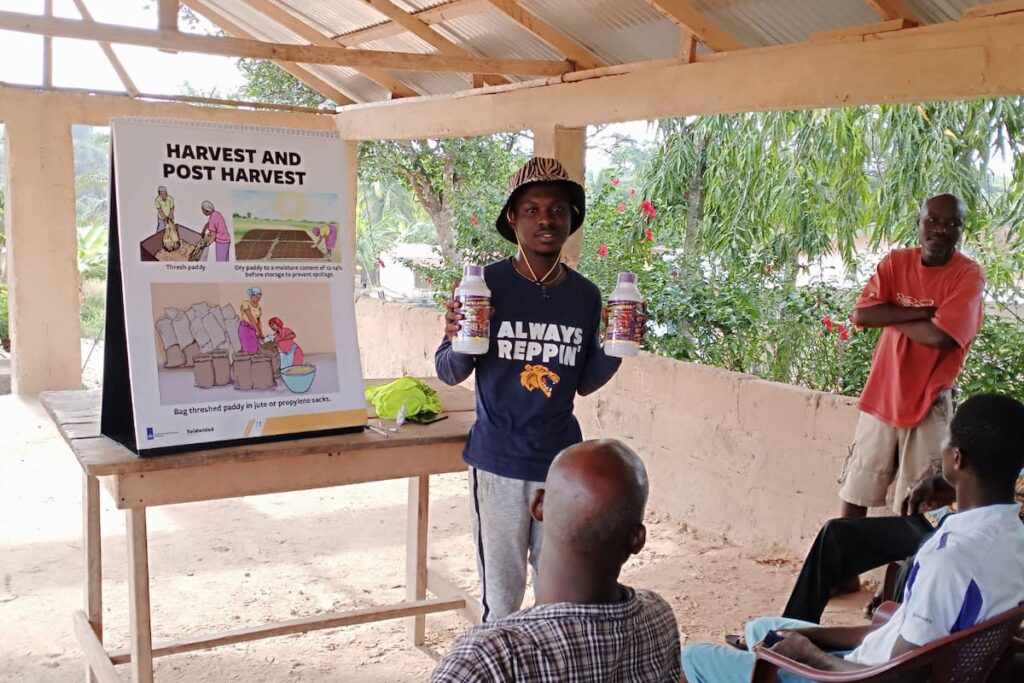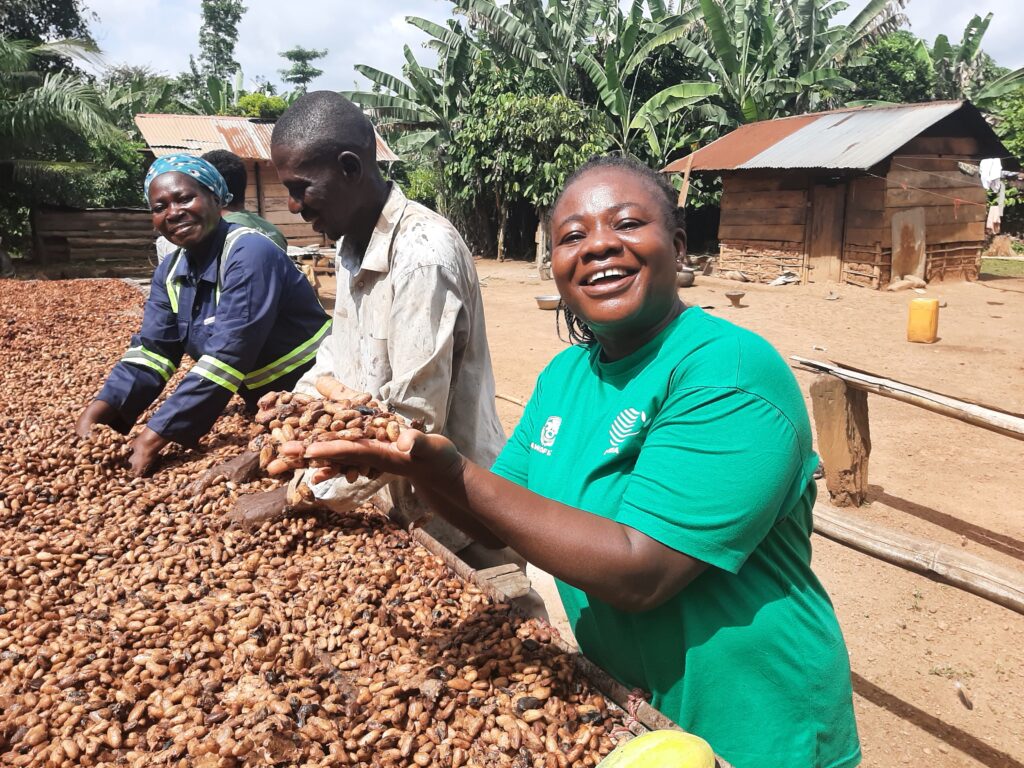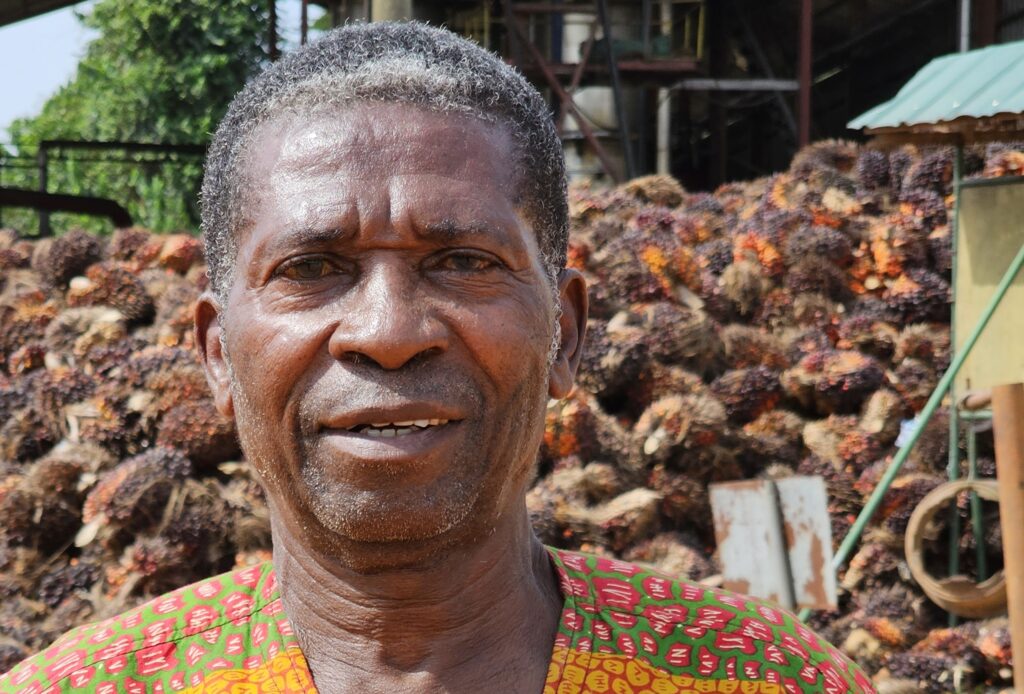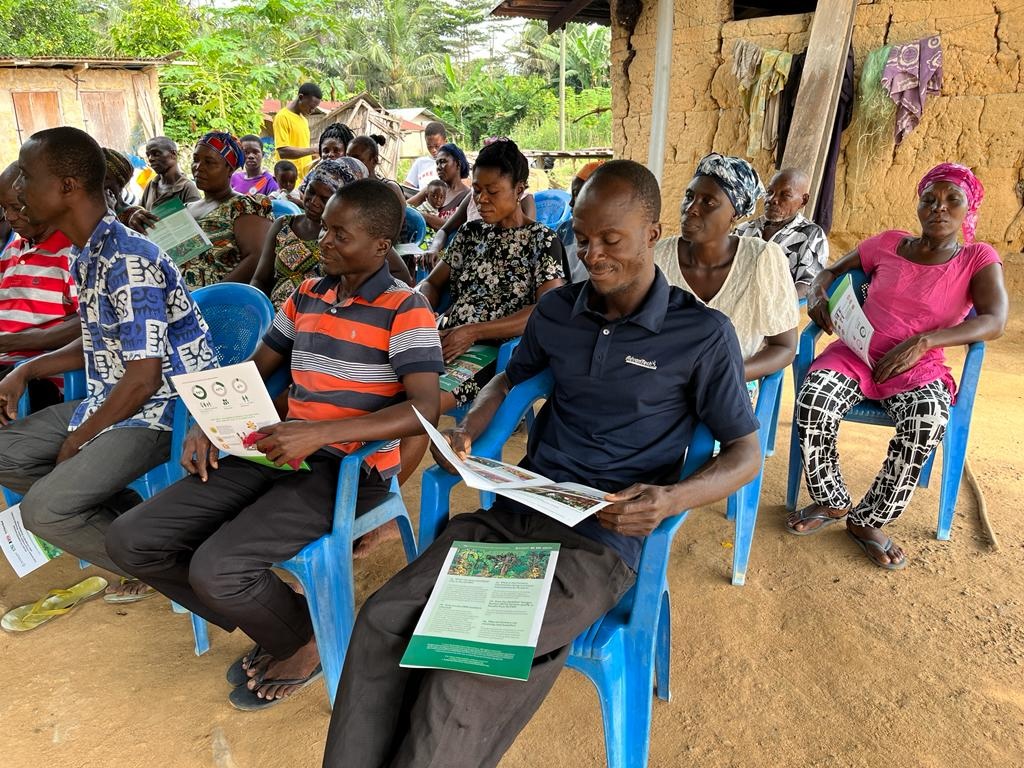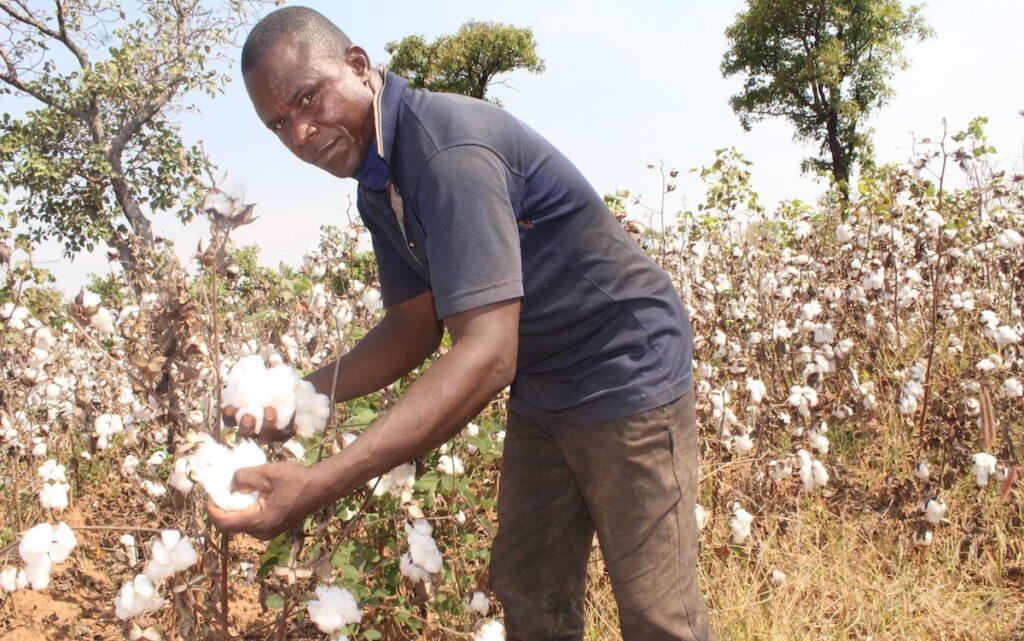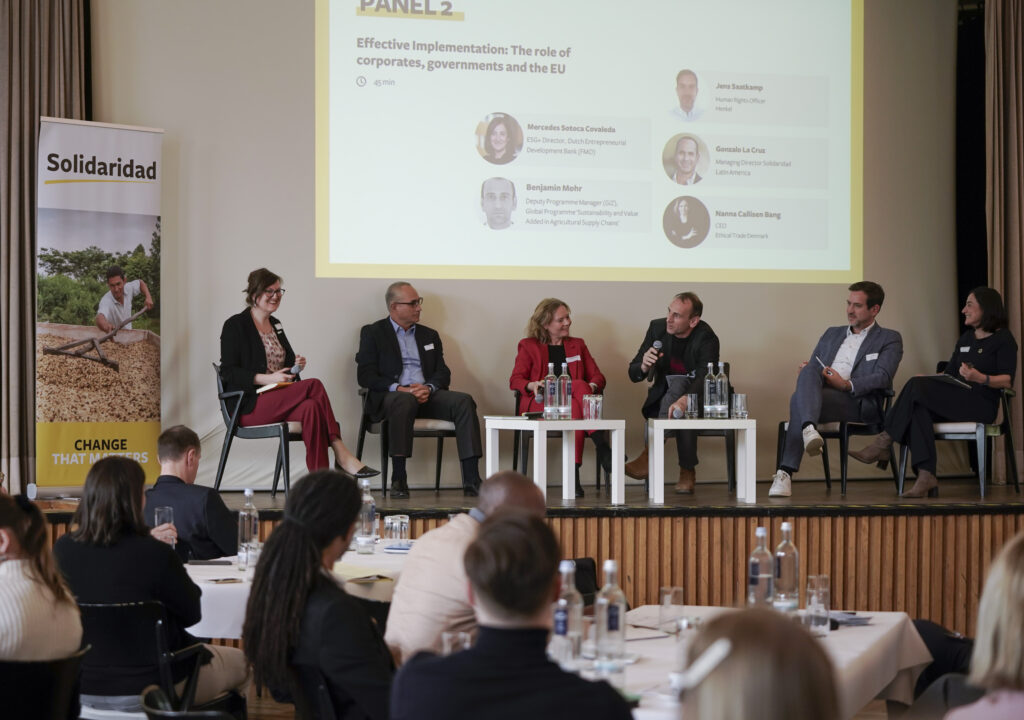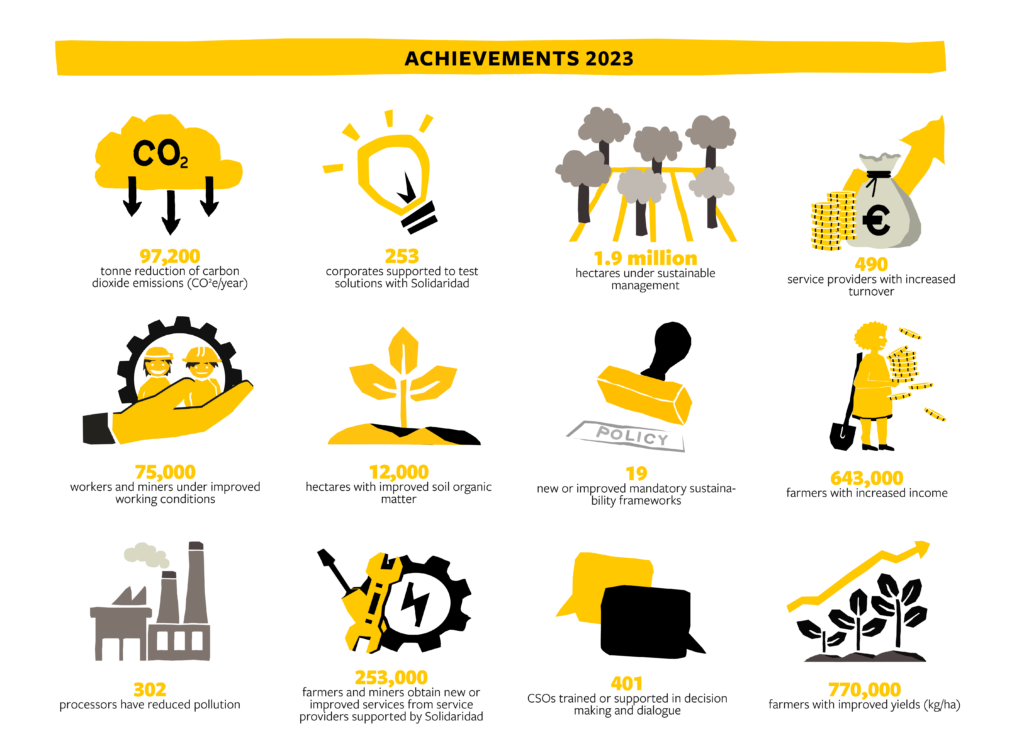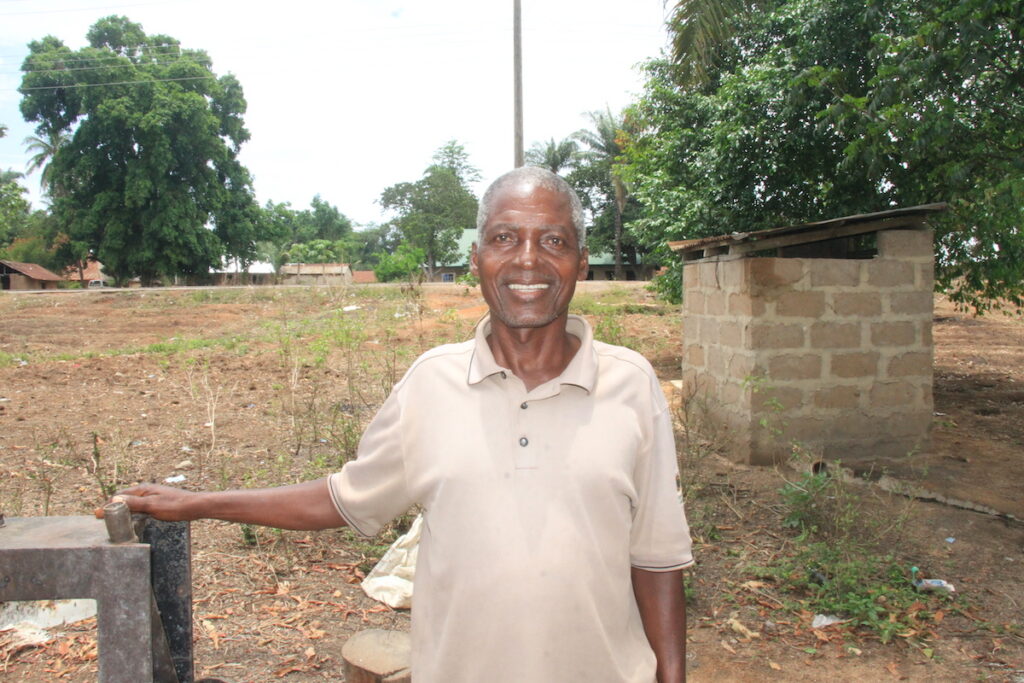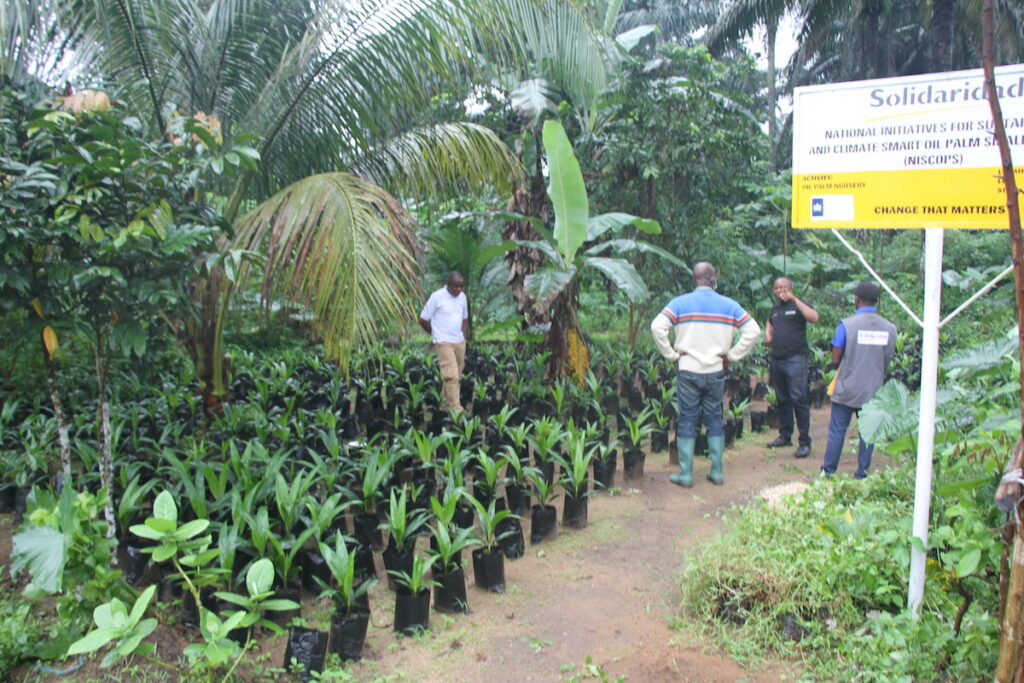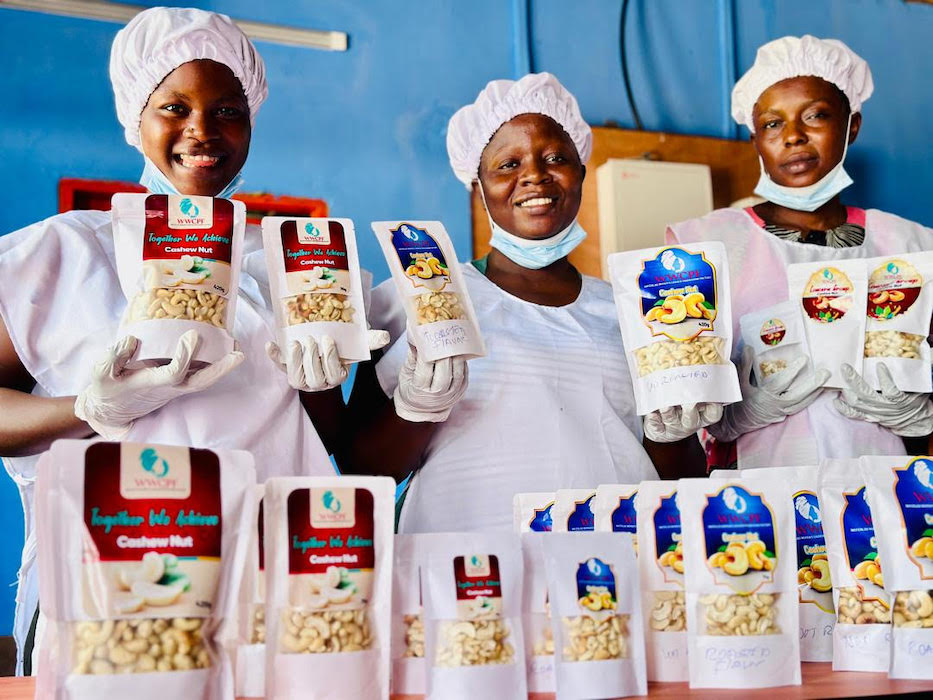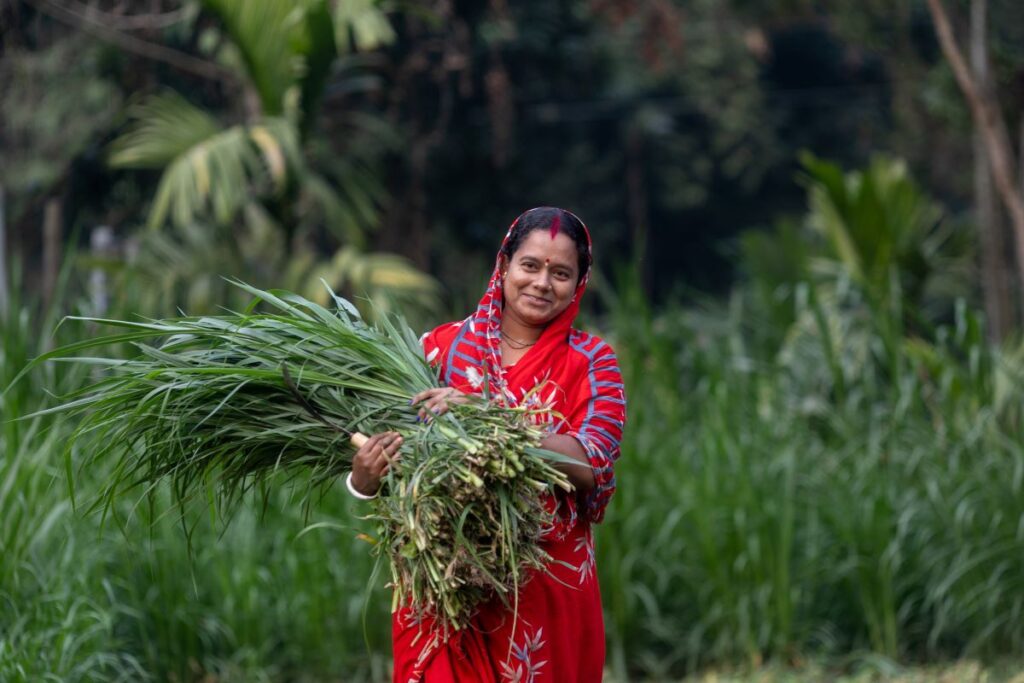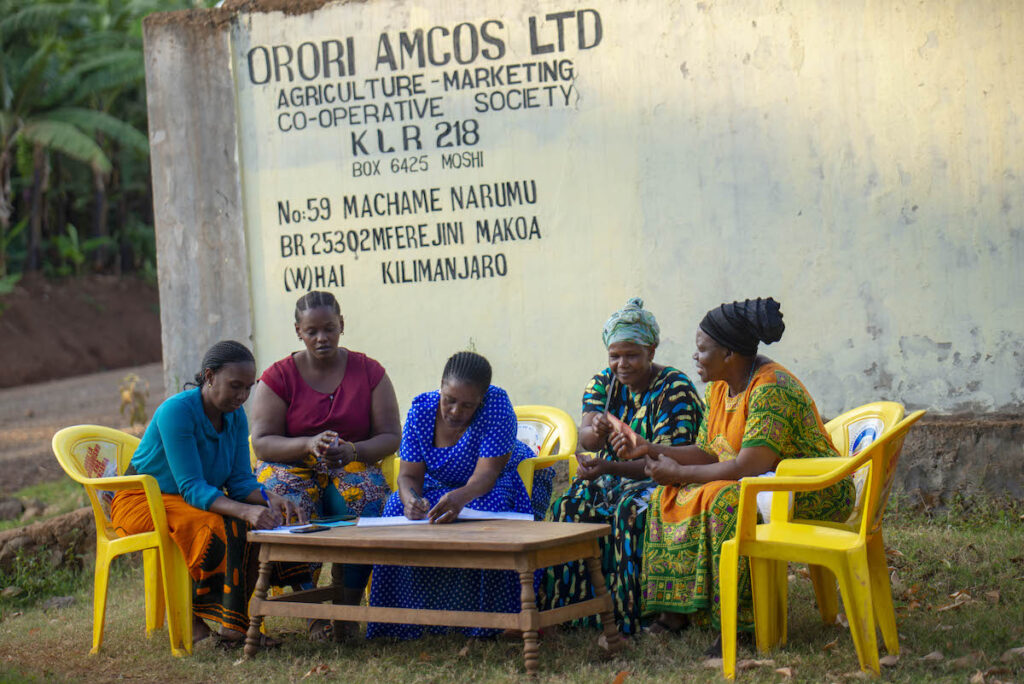Over the last four years, Percy, a 48-year-old cocoa farmer, has been advocating for farmers to stop the use of school-aged children for labor on their cocoa farms.
I tell farmers that not allowing children to go to school but [instead having them] engage in activities such as carrying heavy loads, spraying agrochemicals, breaking cocoa pods with a cutlass, and doing other activities for long hours was against their rights as children.
Percy indicated that even though many farmers have responded positively to his awareness-raising efforts by refraining from taking children to their farms, there remains a small population of farmers that are still engaged in this practice.
His work in the community has expanded into seeking external partners, to bring subject matter experts like Emile Anyormi into the community to raise more awareness. Emile is the owner of Agrisus Consult, a rural service centre set up to provide farm management services to farmers as part of Solidaridad’s implementation of the Cocoa Rehabilitation and Intensification Programme. The centre provides farm management services to engage and train farmers on issues of child labor.
I will not stop my campaign until the last child is disengaged from inappropriate farm labor practices and activities.
Desire to eradicate child labor from the community
Married with three children, Percy has been a farmer for 18 years. He said his desire to help eradicate child labor from his community began in 2017, as he became educated on child labor issues through his work as a purchasing clerk for Olam International and as a disease spotter for the Cocoa Health and Extension Division of the Ghana Cocoa Board.
His desire heightened after receiving additional capacity-building support from Agrisus.
After receiving further education, I realized that child labor was a disturbing trend in Ghana’s cocoa sector, including my area. I was determined to do my best to see the phenomenon completely eradicated from my community.
The role of service provision enterprises
As part of an effort to tackle child labor issues in the cocoa sector, Solidaridad supported the establishment of service-provision enterprises, also known as rural service centres, in hard-to-reach cocoa-growing communities across the country. This has provided farmers with the much-needed professional labor services, at an agreed fee, required to improve farm yield and enhance their incomes.
The centres provide expert services like pruning, weeding, fertilizer application, pest and disease control, full farm management, and the sale of approved agro-inputs. These services are helping smallholder farmers to increase their productivity and sustainability. With access to professional labor services, farmers are less inclined to engage their children in hazardous farm practices.
Aside from training farmers on proper ways of spraying, pruning, and providing farm management services to improve their yields, Agrisus also educates farmers on child labor issues. Percy mobilizes farmers in and around his community for Agrisus to offer this support to them.
Every month I invite about 40 to 50 cocoa farmers for a talk about child labor, usually facilitated by Emile and other executives from the Cocoa Health and Extension Division. This has really helped [our cause]. Lately, farmers caution their fellow farmers when they see school-age children on their farms.
Rural service centres improving farmer yields
Like other cocoa farmers, Percy faced challenges such as lack of access to finance, land tenure and quality seedlings. He maintained his farm to the best of his ability until he came into contact with Agrisus. “I decided to hand over my 10-acre farm to Agrisus to manage in 2019. At the time they took over, I was producing 15 to 20 bags of cocoa per year. But since 2020, my farm has been producing 25 to 26 bags even amid erratic rainfall patterns. I am expecting better yields in the coming years when the rains improve.”
With the improved income, Percy can afford additional professional labor services on his farm to make him more resilient.
I used part of the income to pay for my children’s school fees and invested the other part in building a shop to retail groceries as an additional livelihood.

